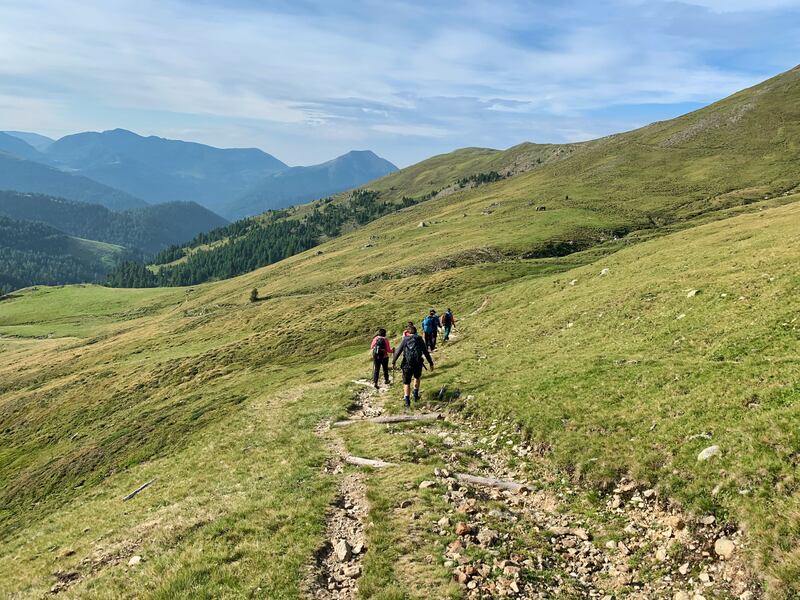Travel and tourism may appear to have been a success in 2019, but the industry was skewed.
According to the World Travel and Tourism Council, this sector accounted for more than 10 per cent of global economic activity, providing more than 330 million jobs. However, overtourism was an increasing issue and many cities struggled to cope with seasonal visitors.
Bargain fares from low-cost airlines meant it was often cheaper to fly to destinations that were easily reachable by other methods of transport, and there was an insatiable fascination with having more — more visitors, aircraft, destinations, attractions.
In March 2020, when the World Health Organisation declared the Covid-19 pandemic, the industry rapidly turned on its head. Lockdowns, grounded aircraft and an airborne virus led to the collapse of travel as we knew it, as authorities tried to control the disease by implementing restrictions.
International travel plunged by 72 per cent in 2020, according to the World Tourism Organisation, the worst year on record for tourism, resulting in 1.1 billion fewer tourists worldwide and putting the number of travellers back to the levels of 30 years prior. Jobs were lost, companies folded, airlines went bankrupt.
Two years later, travel is beginning to bounce back. And as the United Nation’s marks World Tourism Day on September 27, under the theme Rethinking Travel, many in the industry are reflecting on lessons learnt amid the pandemic.
Having had time to step back and consider what tourism should really look like, industry leaders have an overwhelming sense of optimism for the future. They are adamant that lessons learnt during Covid-19 will not have been in vain.
Investing in local communities
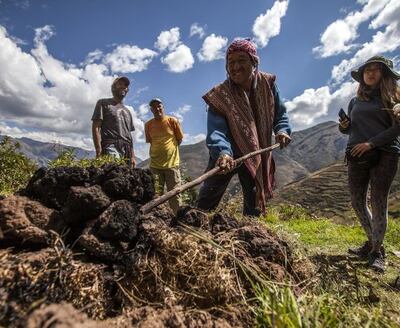
For the team at Amazonas Explorer, a travel company based in Peru, the pandemic forced a change of tactic.
The adventure travel specialist has been in operation for more than four decades and works with a strong network of local porters, guides and cooks.
“The pandemic forced us to change our way of thinking, as we had to find a way to ensure our guides and porters were able to support themselves, as it was simply not feasible for us to continue to pay wages when we had no bookings,” says Claire Williams, the company’s marketing manager.
With no tourists, there was no work and no money. With more than 10,000 registered guides in Peru, many people suddenly found themselves struggling.
Ruben Apaza, a history professor turned tour guide at Amazonas Explorer, was among the thousands who attempted to find a new source of income, but no one was hiring. He resorted to selling his car and applied to the government to access his pension fund early to get by.
But the company’s owner, Paul Cripps, was not about to give up on his team that easily.
He devised a scheme to support the guides by asking them to provide business plans that were viable during the pandemic. The ideas came thick and fast, with everything from transforming land previously used for adventure pursuits into a potato plot, to building a chicken farm. The company then began fundraising.
Collecting more than $40,000, Amazonas Explorer was able to support several of its guides in bringing their businesses to life, helping them to earn a living, even while tourism in Peru remained virtually non-existent.
Changing paths for a better tourism industry
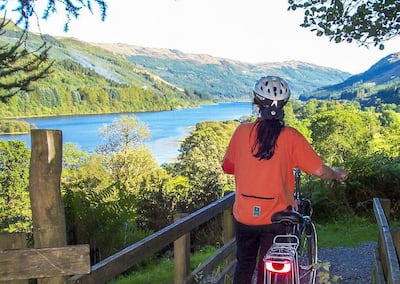
Other travel companies were flooded with cancellations amid the pandemic, and many took it as a time to reshape their business.
UK tour operator Saddle Skedaddle has been specialising in biking holidays for more than 25 years, and typically operated many trips to Europe. Amid the pandemic, the company pivoted back to its roots in light of an increase in demand for domestic travel.
“Restrictions led to a huge increase in staycations," says Andrew Straw, creative director at the biking company. "Many people also rediscovered hobbies and leisure pursuits, which saw a rise in the popularity of cycling.”
Expanding its UK holiday range to provide more guided and self-guided holidays in England, Scotland and Wales, the company also added longer trips to take people off the beaten track, allowing travellers to find a sense of adventure while exploring their own country.
Fast-forward to today, and the cycling holiday packages remain popular in the UK, and are set to stay on the agenda. Not only does this have a positive impact on local communities, says Straw, as Saddle Skedaddle seeks out new partners for excursions and itineraries, but it’s also better for the planet, given many of these holidaymakers would have previously opted to fly overseas.
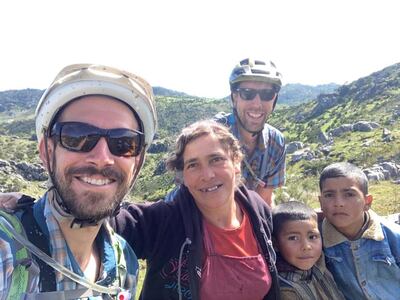
In Guatemala, Chris Gwinner, the general manager of Old Town Outfitters, found himself in a similar scenario. During the first few months of the pandemic, the central American country locked down completely and tourism came to a halt.
When things did begin to reopen, Gwinner saw there was an appetite for domestic tourism. “As restrictions started to lighten, we did our best to create tours that focused on our domestic market both to give our local guides an opportunity to work, and simultaneously provide a safe outdoor outlet for the local Guatemalan market,” he says.
The team at the travel agency, which has been operating for more than a quarter of a century, came up with unique routes and experiences, including a five-day backpacking trip through one of the country’s most remote regions and nocturnal bike rides on Volcan de Pacaya.
“We created unique experiences that our Guatemalan clients would find exciting, even in their own backyard. In a way, this process was a good push for us to innovate, and think about new routes and tours that weren't being offering by anyone in the country.”
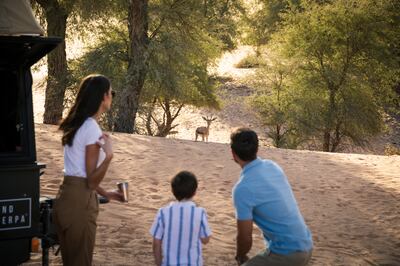
In the skyscraper city that is Dubai, eco-adventure company Sand Sherpa also experienced a similar trend for stay-at-home holidays.
“People were restricted from travelling overseas, so had to look for escapes closer to home," says Rob Nicolas, founder of the eco-adventure company. "Many people discovered there is more to where they live than they realised. They literally rethought experiences they could enjoy here in the UAE.”
The company has always had a focus on preserving Dubai’s nature — it works exclusively in the 225-square-kilometre Dubai Desert Conservation area — but the enforced pause amid the Covid-19 pandemic allowed Sand Sherpa to amp up this side of its business.
“We realise what we had taken for granted, and hope better practices and attitudes will help us to preserve what is left of the natural environment, especially in the delicate ecosystem of the UAE.”
Connecting with nature for a sustainable future
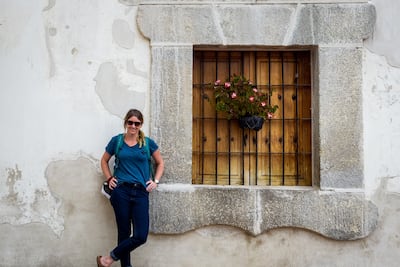
It’s this connection with nature that drives Root Adventures, a mindful adventure travel company based in Colorado in the US. Offering holidays designed to create change and healing through travel, the company took advantage of the enforced pause at the height of the pandemic to reassess its offerings.
“Our major shift was to create trips that allowed people to pause, to connect and to experience nature and each other in a completely different way,” says its founder Breanne Kiefner.
“We moved away from the traditional model of luxury wellness retreats to focus on activities that push our participants physically, mentally, emotionally and spiritually. Our tour leaders now facilitate a disconnection from the daily grind and a deep reconnection to the simplicity of what is truly present.”
Such a shift can only be welcome as the world recovers from the pandemic. And it's something Jeff Bonaldi, founder of US travel company The Explorer’s Passage, is mindful of and believes the industry can help with.
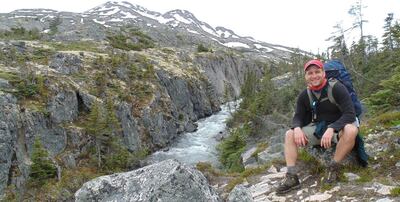
“People have been through a lot during the pandemic. As a tour operator, we may need to manage anxiety for some time. All extraordinary challenges in life can have adverse effects, but post-pandemic travel and adventures in nature can be a powerful way to restore balance through mental and physical benefits, and transformational growth.”
Putting this into action, the company hosted its first big trip since the height of the pandemic, in March, running an Antarctic expedition cruise headed up by polar explorer Robert Swan. For many of the 170 participants, the cruise was their first trip overseas — or first since the start of the pandemic.
“We’ve always believed travel can serve a greater purpose than just going from one place to another, and the pandemic has only heightened this sentiment,” says Bonaldi.
The sustainable trip operated on a ship that used 60 per cent less energy than others of the same size, and gave travellers a chance to see the sobering effects of climate change first-hand. It also engaged travellers in a pre-embarkation beach clean-up, during which more than 500 kilograms of waste was removed from a Patagonian shoreline. This type of regenerative travel, or the idea that tourists can leave a destination in a better condition than it was when they arrived, is critical to the future of the industry.
Since the expedition, the group have collectively spread awareness of the climate crisis through presentations in schools, corporations and government offices. They’ve also begun local initiatives, as well as implemented sustainable practices in their own lives.
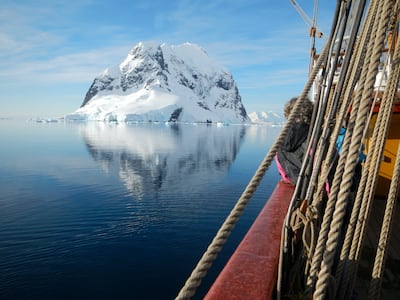
“During the pandemic, as people took shelter at home, nature began to heal. Tourism needs to rethink working with nature, not against it — this is more evident than ever before. Sustainability, local communities and inclusivity are key to moving forward,” says Bonaldi.
This is something the German National Tourism Board is also championing. The country was praised for its handling of the Covid-19 pandemic and its official tourism organisation is working to build a better travel industry as the world emerges from the pandemic.
It has introduced two digital resources designed to make travel in Germany inclusive and more sustainable. The first allows for barrier-free travel and offers information to seven different groups of visitors including those with reduced mobility, wheelchair-users, people with visual impairments and tourists with learning difficulties.
“Germany has a wide range of adventurous offerings for travellers seeking increased levels of accessibility, and our Barrier-Free initiative makes it even more straightforward to find them,” says Petra Hedorfer, chief executive at the German National Tourism Board.
“The Feel Good campaign encompasses a plethora of guiding tips highlighting the country’s eco-initiatives, and providing conscious travellers with adequate tools and information on reducing their carbon footprint while touring different regions.”
The pandemic as a call to action in Pakistan
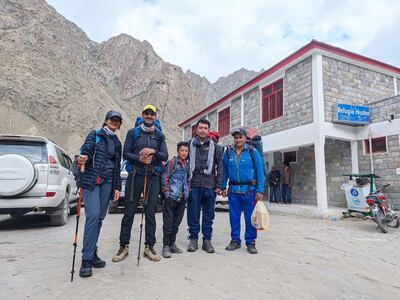
Umer Latif is implementing something similar in Pakistan on a smaller scale.
The ex-medical company executive quit his job amid the pandemic to pivot into the world of tourism. He founded Beyond the Valley, a travel company offering trips in the Karakoram Mountains of Pakistan.
“Like many others, I suddenly had more time on my hands during the pandemic. I spent it adventuring in the Karakoram — trekking in remote valleys and enjoying cultural tours to secluded communities. During my travels, I noticed the lack of sustainably focused tour companies.”
After studying the industry, Latif decided to take the plunge, resigned and then launched his company, with the aim of leading by example in terms of sustainable travel and with a plan to develop responsible tourism protocols.
Located in the Gilgit-Baltistan region of Pakistan, the Karakoram offers stunning landscapes and a unique ecology, and Latif wants to focus on preserving the land as it is today.
“The biggest lesson of the pandemic for me has been realising the state of our fragile world and the importance of sustainability. For many avid adventurers like myself, we realised the challenges and felt the need to get involved.”
He has started by repositioning the area as a year-round destination in order to move away from the issues that come with seasonal tourism. Beyond the Valley runs tours every season, introducing adventure activities and winter sports in addition to traditional summer hiking trips. The company is also focusing on improving education around sustainable travel.
“Many tour operators in Pakistan face challenges in delivering on sustainability due to a lack of guidance and definitive advice, as well as ineffective communication,” explains Lutif. His company has produced a list of sustainable tourism protocols relevant to the region, and these are shared with arriving travellers, other tour operators and local communities and authorities.
Appreciating the pause
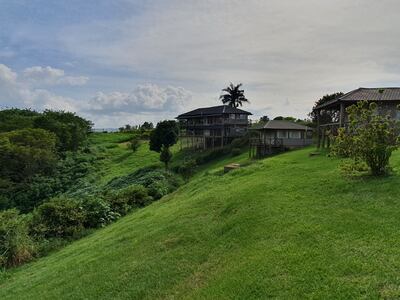
Looking back at two years of a global pandemic, many industry insiders admit the enforced pause was not wholly a bad thing.
Despite her company being crippled by travel restrictions, Evelyn Nakazi, managing director at female-owned Iconic Travel Service in Uganda, still sees the silver lining the hiatus brought.
“My country, my business, my family and my community were greatly affected [by the pandemic], but I can’t say it was all bad. At the same time, our conservation areas were able to thrive and our researchers spent time studying methods that will allow us to be more sustainable in the future.
"When we visited many places after lockdowns were lifted, we saw many areas of nature were much greener and that, now more than ever, local communities are excited to receive visitors again.”
